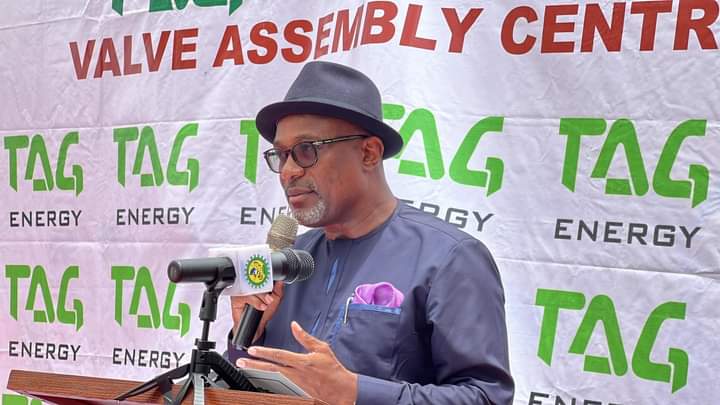FG To Maximize Local Content Opportunities In Midstream/Downstream Sectors
The Federal Government has expressed firm determination to fully catalyze investments in the midstream and downstream sectors of the petroleum sector, with a view to creating employment for teeming youths and maximizing local content opportunities.
The Minister of State for Petroleum Resources, Chief Timipre Sylva gave assurance on Monday when he declared open the Nigerian Content Midstream and Downstream Oil and Gas Summit organized by the Nigerian Content Development and Monitoring Board (NCDMB) in Lagos.
He stated that the Nigerian Oil and Gas industry is currently in the phase of exploring the vast opportunities and potentials associated with the midstream and downstream sectors and commended the NCDMB for intervening to foster dynamism in the sectors through the summit.
He acknowledged that the midstream and downstream sectors did not receive the deserved focus in the past but hinted that the situation was set to change because the recently enacted Petroleum Industry Act (PIA) contains fiscal incentives to attract investment in gas development, distribution, penetration, and utilization and provides exceptional care for host communities. He charged industry stakeholders to take determined steps to unlock natural gas and domestic production potentials and use the opportunities in the gas ecosystem to drag millions of Nigerians out of energy poverty.
In his welcome address, the Executive Secretary, NCDMB, Engr. Simbi Kesiye Wabote affirmed that the Board is keen to maximize Local Content opportunities in the midstream and downstream sectors because they offer the greatest number of employment opportunities as well as longevity of jobs in contrast to the upstream sector of the oil industry.
“This provides means to absorb outputs of our Human Capacity Development programs in the form of job opportunities,” he added.
He also stated that the entry barrier for businesses to partake in the midstream and downstream sectors of the industry is relatively lower compared to the upstream sector and there are vast business opportunities in the midstream to downstream sectors, ranging from processing, transportation, storage, and distribution that could be started on small scale and later scaled up to bigger enterprises thereby growing in-country capacities and capabilities.
According to Wabote, the profit margin is also attractive in the midstream and downstream, especially in the LPG distribution value chain and this serves as an incentive to attract a wider number of players.
He emphasized the need to maximize the potentials of the midstream and downstream sectors to ensure energy security and national pride, adding that the direct social impact of a productive and efficient midstream and downstream sector of the oil and gas industry also needs to be maximized.
The Executive Secretary further explained that the Nigerian Oil and Gas Industry Content Development (NOGICD) Act established NCDMB as the regulator of Nigerian Content in the entire spectrum of the Nigerian oil and gas industry. He added that the Board’s regulatory role is not to stifle the industry but to provide enabling, and inclusive, business environment for businesses to thrive with the active participation of critical stakeholders.
Giving a rundown of the Board’s achievements in the midstream and downstream sectors, the Executive Secretary listed the partnership with Waltersmith, which resulted in the delivery of the 5,000barrels per day modular refinery in Imo State, the 2,500barrels per day Duport Modular Refinery located in Edo State, which is due for commissioning this year as well as the 2,000barrels per day Atlantic Refinery and the 12,000barrels/day Azikel Hydro-skimming Refinery both in Bayelsa state, which are under construction.
Other achievements of the Board include the partnership with the NNPC to construct a 50,000liters petroleum products terminal in Brass, the partnership with Bunorr Integrated Energy Ltd for the establishment of 48,000 liters/day Base Oil Production Facility in Port Harcourt, Rivers State, which is due for commissioning this year and the ongoing construction of the Eraskon Lube Oil factory in Gbarain, Bayelsa State
Dwelling on the LPG value chain, the Executive Secretary stated that the Board had gone into partnership with some investors to develop some projects. Some of them included the partnership with NEDO Gas Processing Company in Kwale, Delta State for the establishment of 80MMscfd of Gas Processing Plant and a 300MMscfd Kwale Gas Gathering hub, partnership with Triansel Gas Limited in Koko, Delta State for the establishment of 5,000MT LPG Storage and Loading Terminal Facility and partnership with Brass Fertiliser for the development of a 10,000MT/day Methanol Plant at Odiama in Brass.
Others are the partnership with Butane Energy to roll out LPG Bottling Plants and Depots in Abuja and 10 northern states and partnership with Southfield Petroleum for the establishment of 200 MMscfd gas processing plant at Utorogu, Delta State to produce 123,000MTPA of LPG, which is about 10 percent of current LPG demand nationwide.
Other investments include the partnership with MOB Integrated Services for the construction of the 500MT Inland LPG terminal which is currently in operation at Dikko, Niger State as well as the partnership with Amal Technologies to set up a plant in Abuja to produce Smart Gas/Smoke Detector Alarm devices.


